While in London earlier this month I got to spend time with my lovely friend Kimberley Tait. Her debut novel, Fake Plastic Love, was just published and I will forever treasure my signed copy. Set in millennial Manhattan, the book explores post-grad life through the experiences of two best friends (one an investment banker, the other a lifestyle blogger), and I know you will all enjoy it immensely. Below, check out my interview with Kimberley about penning a novel, her classic inspirations, and her novel’s relatable characters. Order you own copy of Fake Plastic Love here.
When did the idea for writing Fake Plastic Love first come about?
The idea for Fake Plastic Love was sparked by my honors thesis at Dartmouth on life as a staged performance in the novels of F. Scott Fitzgerald. Almost all of Fitzgerald’s heroes tried to script and stage their lives, which is a big reason they were doomed to fall. So much of Fitzgerald’s work is deeply autobiographical; just like his flawed heroes, he too attempted to stage his life. (In fact, he was one of the first authors who became a living brand of sorts.) I drafted my thesis a few years before social media first surfaced and could have never anticipated how relevant the idea of staging everyday life would become in our new millennium. After graduation — maybe because I kept pining for my idyllic college days — I continued to look at the world around me through the lens of that thesis.
The idea of staging life dovetailed so perfectly with some of the powerful forces that surfaced in the early 2000s — in particular, social media and the distorted relationship many young professionals began to have with work and achievement. Suddenly, we were all caught in a mad, high-pressure race to gather gold stars, both professionally and personally — accolades on our C.V. and “likes” on our social media posts. Appearing to be liked and successful became paramount. But is that actual success? Does that really make us happy? Is the proverbial winner in this game actually the loser? I wanted to write a tale that tackled those questions, showing how a set of romantic and pragmatic characters would navigate and ultimately survive in the hyper-connected, hyper-competitive world we now live in. [Image: Kimberley museum hopping in Vienna]
Naturally, I love Belle’s character. What inspired her?
I am so glad you love Belle Bailey! I love her, too, though she swings between enchanting and cringe-worthy and larger-than-life and totally enigmatic. The initial inspiration for Belle was the Radiohead song “Fake Plastic Trees,” which also inspired the title of the novel. (I often write to music and find inspiration in song lyrics for a scene or a character — from Cole Porter to Coldplay to Caro Emerald. You can listen to my Fake Plastic Love “inspirational soundtrack” on Spotify!) Only the band knows the real meaning of “Fake Plastic Trees,” but the song always struck me as a ballad of people who lead superficially perfect lives, but are unfulfilled, sorrowful, and world-weary beneath the surface. When the big surge in lifestyle blogging began a number of years ago, and so many charming, picture-perfect personalities began popping up online, I couldn’t help but wonder how closely those pretty façades matched the actual people behind them. Belle was a way for me to explore the disconnect between what we see online and what genuinely exists. [image: a gingham moment from Kimberley’s instagram]
I love that the book addresses the glossy world of social media/blogging versus reality. Why do you think this is important?
One of the big themes in Fake Plastic Love is how reality holds up — or so often doesn’t hold up — to expectations, at a time when it is extremely tough to figure out what is real and what is an illusion and what is a blend of both, which most things probably are. If people don’t question what they see online and take it with a giant grain of salt, it can be very dangerous and demoralizing. Seeing so much startlingly green grass all around us through other people’s curated highlight reels can make our own realities seem inadequate. It can lead us to make misguided decisions based on what we think other people will think, or how we will present online. Everyday life takes on the quality of spectacle. Studies have proven that using Facebook depresses us while in-person social interactions uplift us. Why are we doing this to ourselves? It’s a dark and disturbing cycle — because we’ll never have a fighting chance to keep up with the Joneses if those Joneses don’t actually exist.
This isn’t just limited to the world of social media and blogging. Fake Plastic Love’s narrator M. — Belle Bailey’s polar opposite best friend — is a serious and hardworking employee at her investment bank, but gradually learns that her iconic firm may not be everything she has built it up to be in her mind. So many smart and ambitious graduates get pulled into industries like finance because of their prestige but are miserable once they step behind the curtain and come face-to-face with the more grisly reality on the other side.
As the world becomes even more connected and competitive, I hope Fake Plastic Love will encourage readers to take a step back and question what is genuine and what is synthetic in all aspects of their lives — and make more of an investment in what is real. [image: a photo from Kimberley’s time living in the British Virgin Islands]
Tell us a bit about yourself. Have you always been a writer?
Writing has always been my big passion. I was a humanities (English and Government) double major at Dartmouth so did a huge amount of writing in college, and after graduation gravitated to jobs that had a writing focus, even when I went to work on Wall Street. But during and after my MBA at Columbia, my roles involved less and less writing, which meant I found them less and less fulfilling. To compensate, I was always working on a manuscript in my spare time outside of work, which became a very important outlet for me when I was in stressful corporate environments. (I am an unabashed romantic and have boxes of teenage diaries and mixed tapes to prove it!) In my heart I knew I needed to keep the creative flame burning. I also knew I wanted to use fiction as a way observe, dissect, and try and make sense of the world around me. My big goal is to produce sentimental and stylish but still serious writing that readers they can appreciate at both a sentence and story level while also commenting on larger social themes and dynamics that are important to me. [image: Dartmouth via Kimberley’s instagram]
Who are some of your biggest inspirations (in writing and/or in life)?
As my Instagram handle (@TheLadyGatsby) probably implies, F. Scott Fitzgerald has been my literary hero ever since I read This Side of Paradise at age 15. My writing style is nostalgic, in part because I consciously echo writers of yester-years. I have always been drawn to authors with distinctive voices like FSF, who create enchanting and transporting atmospheres in their books that envelope you and carry you away. I especially love lyrical writing that blends melancholy and comedy and a sense of yearning or nostalgia. Fitzgerald and Evelyn Waugh were masters of this, as are modern day writers Paul Murray, Jess Walters, Elizabeth Kelly, Mary O’Connell, and Peter Nichols, to name a few. My writing style is very visual and has a cinematic quality, so I’m also inspired by a number of film directors and screenwriters, including: Wes Anderson, Damien Chazelle, Woody Allen, Sofia Coppola, and Baz Luhrmann. (On Baz, I need to mention that I adore Moulin Rouge! and Romeo & Juliet, but was very troubled by the creative liberties he took with his Gatsby interpretation…).
Do you have a writing schedule or daily routine?
I don’t have a rigid writing schedule though I am a night owl and tend to be much more creative in the afternoon and evening. I have a little home office in our London flat and do most of my writing from there, though I try and work from the London Library at least one day a week. The library opened in 1841 and has an unbelievably rich history — with past members including Charles Dickens, Agatha Christie, Virginia Woolf, Rudyard Kipling, and E.M. Forster. You feel surrounded by literary ghosts the moment you cross its threshold. The library has an incredible Reading Room where laptops are not allowed, which makes it the perfect place to edit my pages with a no. 2 pencil, and review proofs once the book is in the final pre-publication stages. I’m also a runner and love writing and editing in my head when I run — it’s the perfect way to clear your head and encourage “ah ha!” moments. Along the way I sometimes need to stop to tap ideas or phrases or even just words in the Notes app on my iPhone — there is nothing more agonizing than an idea vanishing because you didn’t write it down! [image: London blooms via Kimberley’s instagram]
Can we look forward to a second book by Kimberley Tait?
I very much hope so! I am working on a manuscript now about unforgettable first love. It explores the question of whether we ever completely get over our First Loves if we didn’t settle down with them. The story also draws on my experiences romanticizing the U.S. during my childhood in Toronto, and ultimately moving south of the border and becoming American. It’s a fascinating time to think about issues of national identity — the landscape has changed so radically over the last twenty years. This story is told in an even more sentimental and nostalgic style that I think will appeal to anyone who enjoys Fake Plastic Love. [Image: wisteria snapped by Kimberley in London]
Lastly, any advice for others looking to pen their first novel?
Above all, commit your heart and soul to your quest to become a novelist. And it will be a quest! Your passion and commitment is the only thing that will fuel you on the multi-year path to publication, which will be filled with countless highs and lows and curve balls and a great deal of rejection. All of the early rejection in the process of getting a literary agent and finding an editor is very important and ultimately helpful. It enables you to develop a thick skin early, which is critical. Because no matter who you are and what you write, it will never be liked by everyone. There will be people who actively dislike what you are writing. What counts is that you genuinely believe in what you create and have the courage and conviction to push it out into the world, come what may. [image: NYC’s Flatiron building via Kimberley’s instagram]
Thank you, Kimberley!

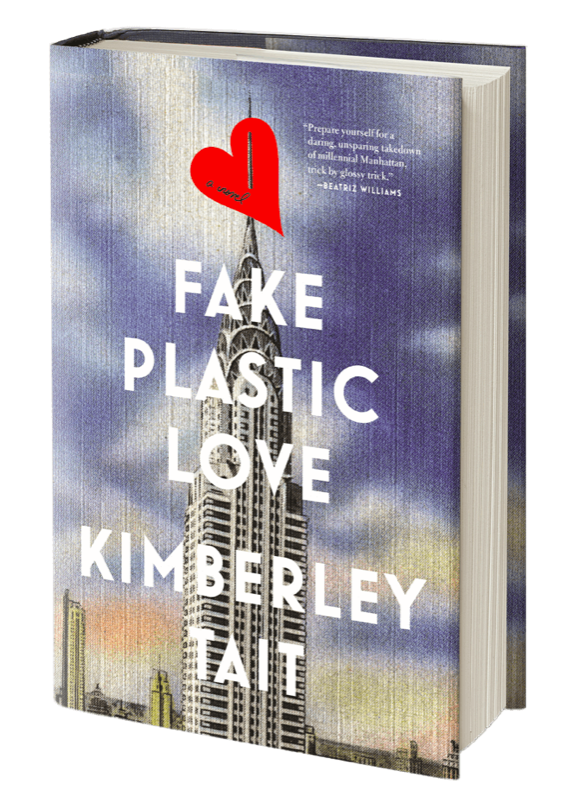
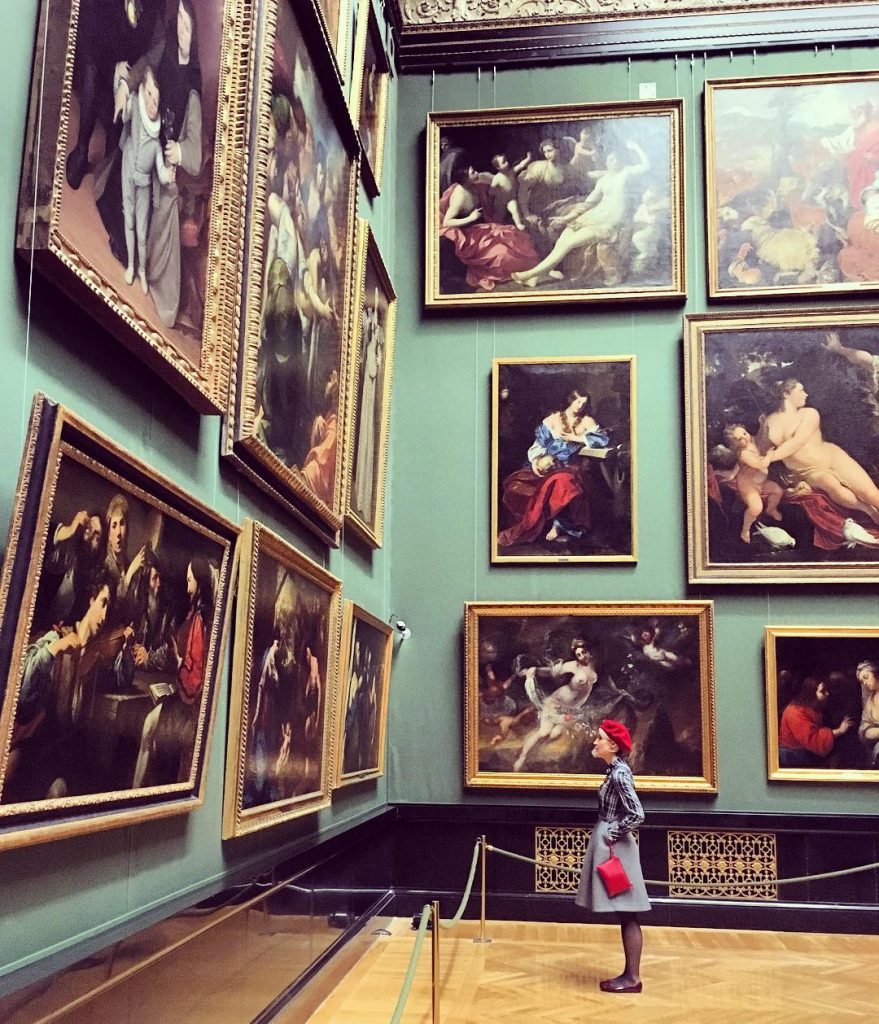



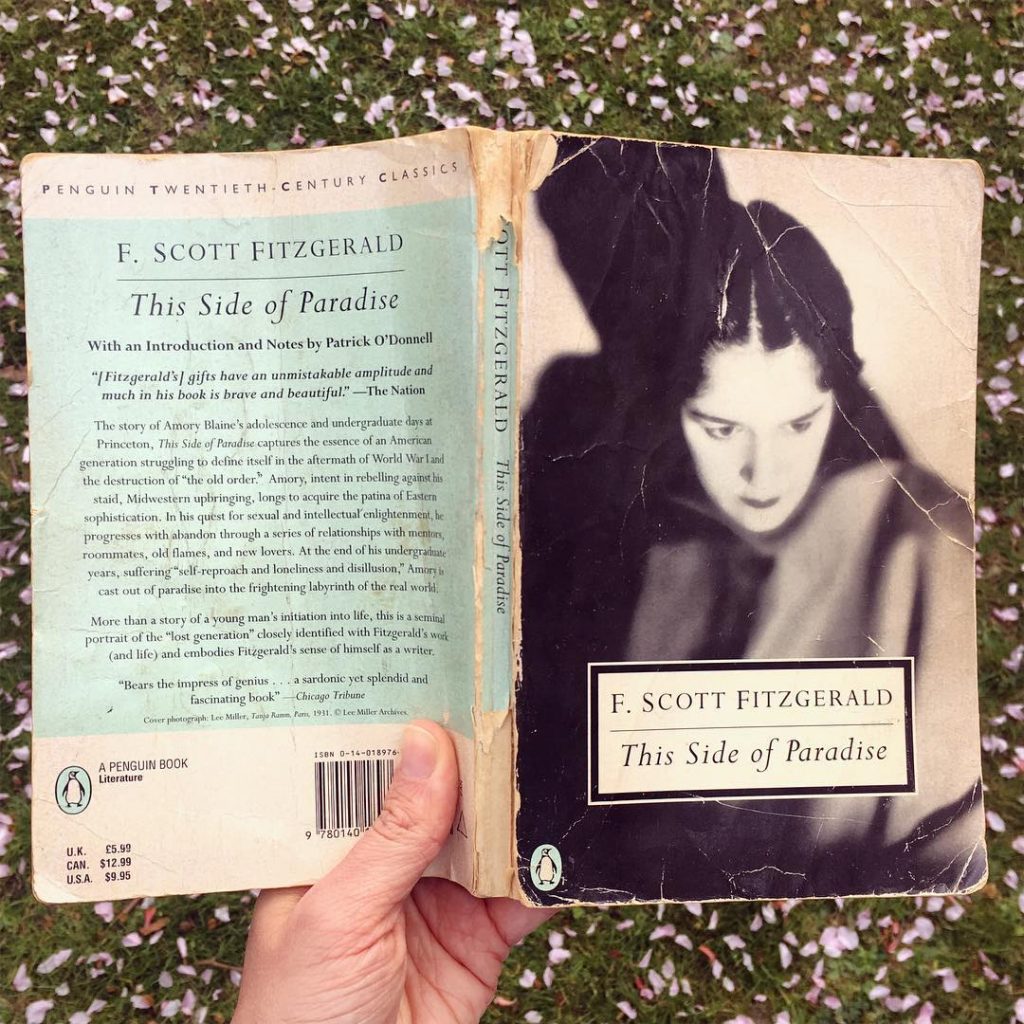
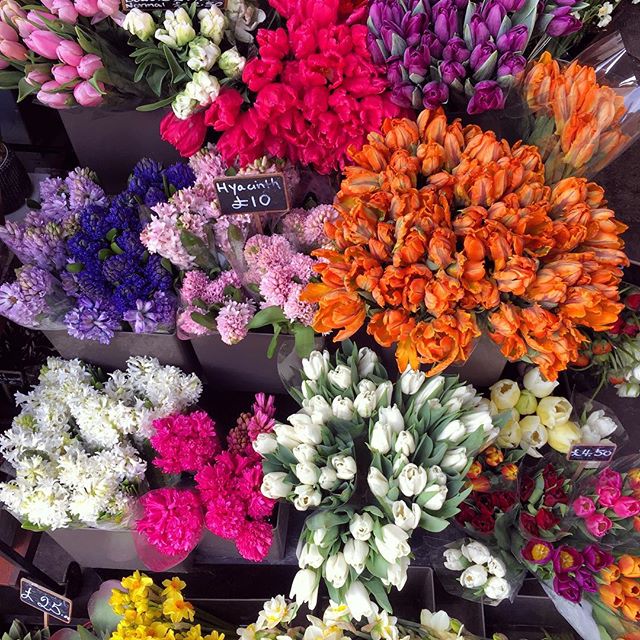
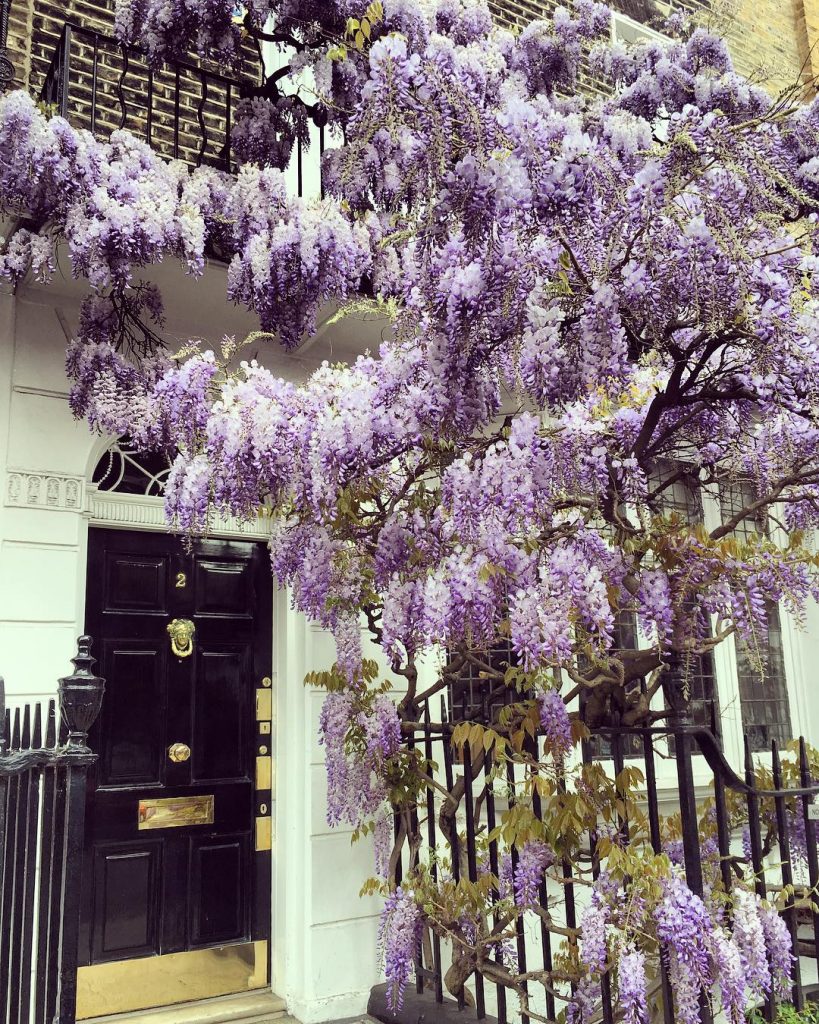
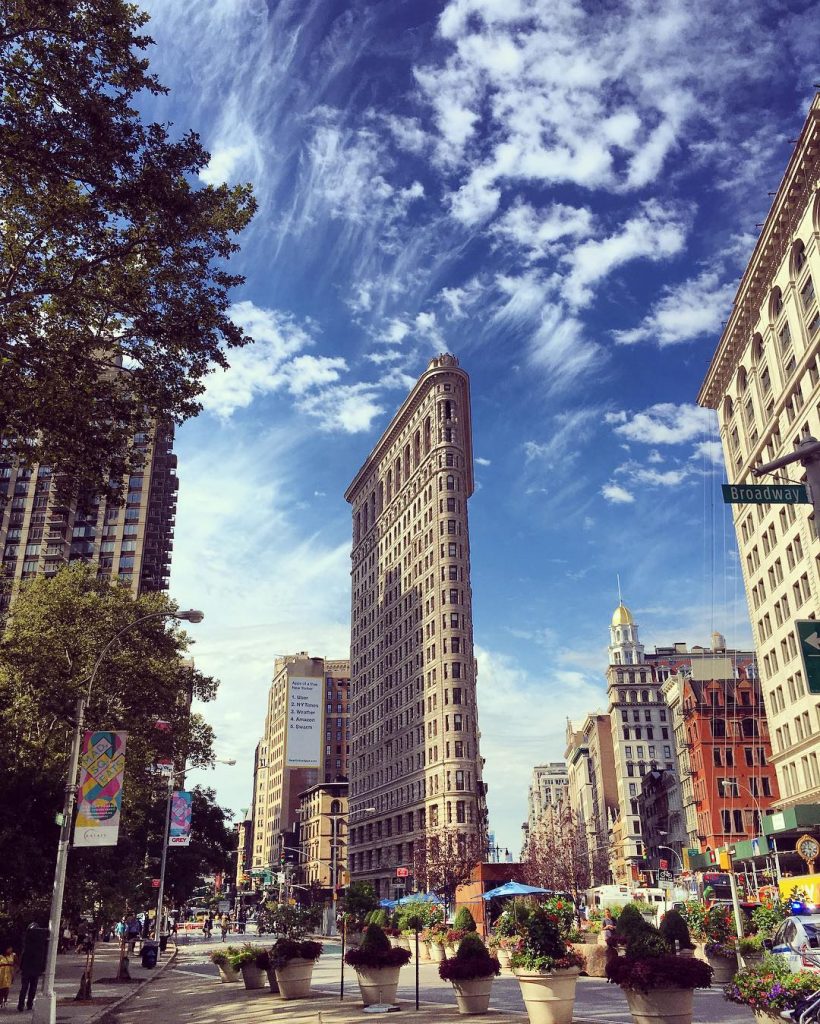

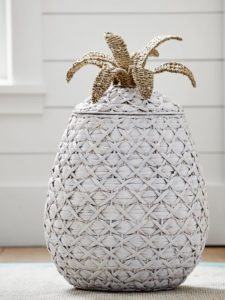



What an absolutely enchanting interview! Can’t wait to pick up her book now (and read her second – hopefully someday soon).
Such a thoughtful interview with captivating photos to match!